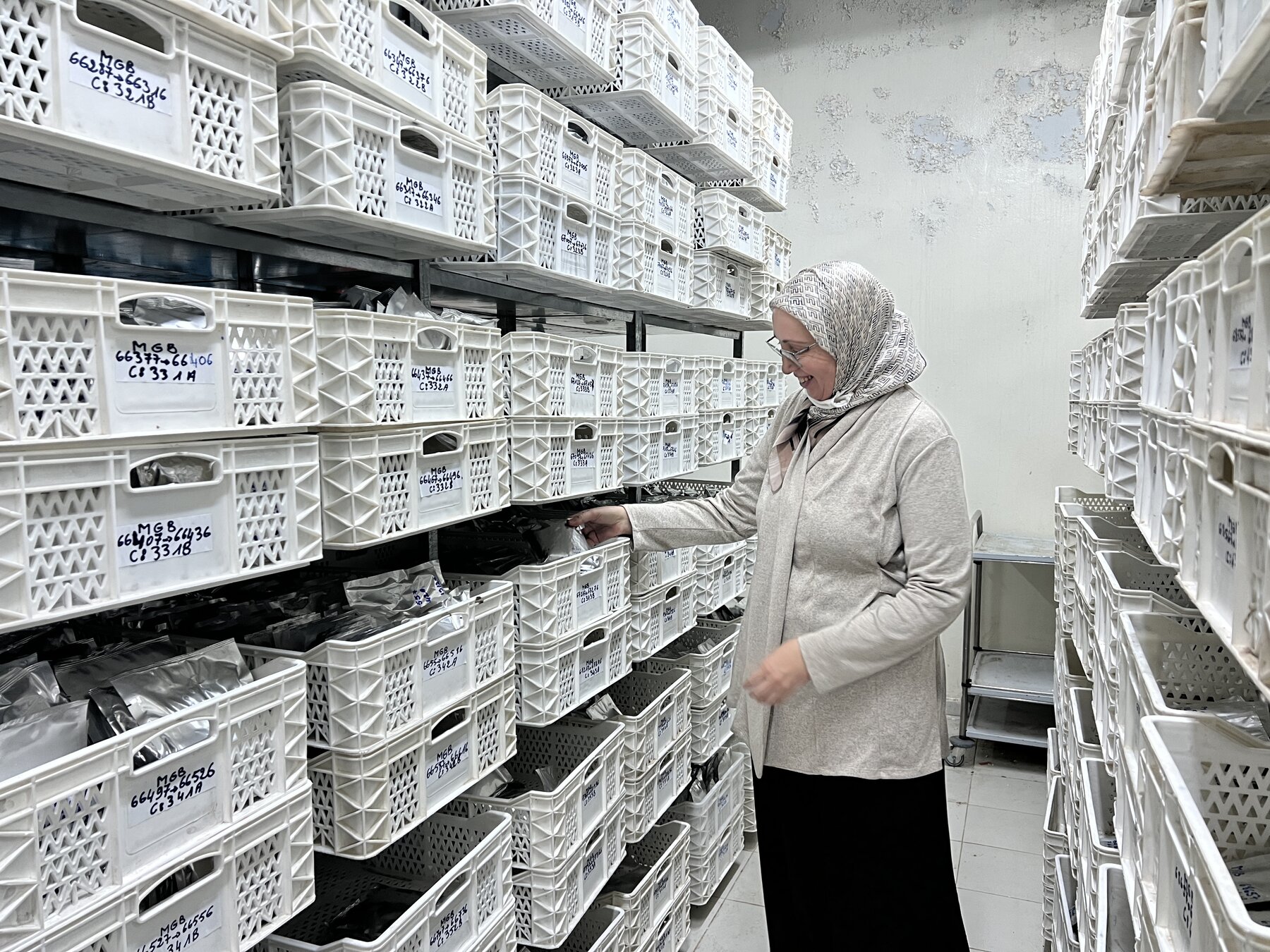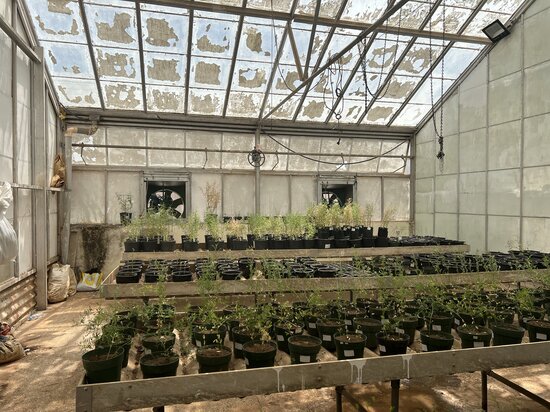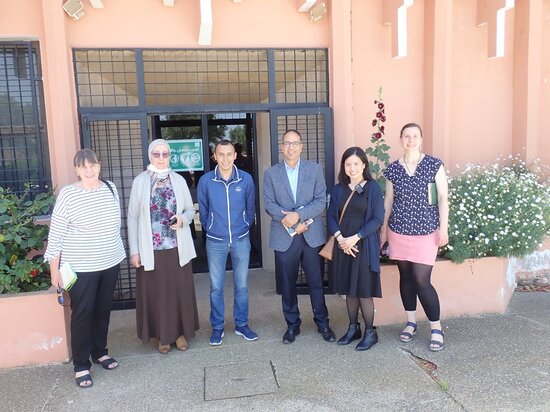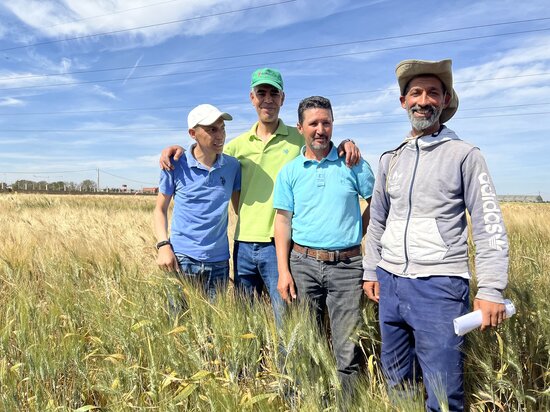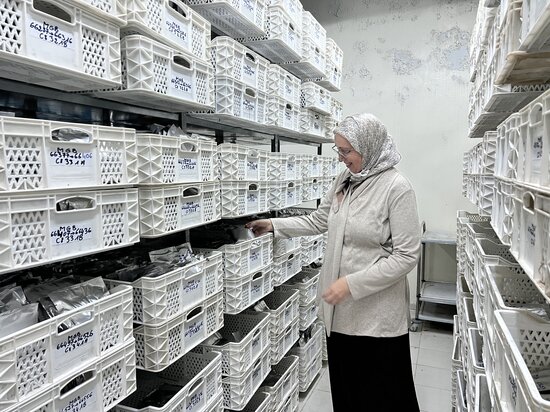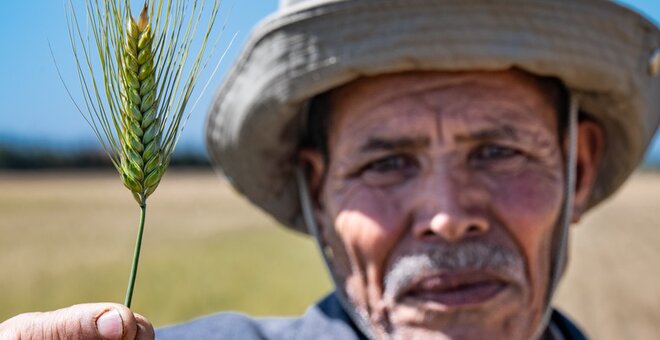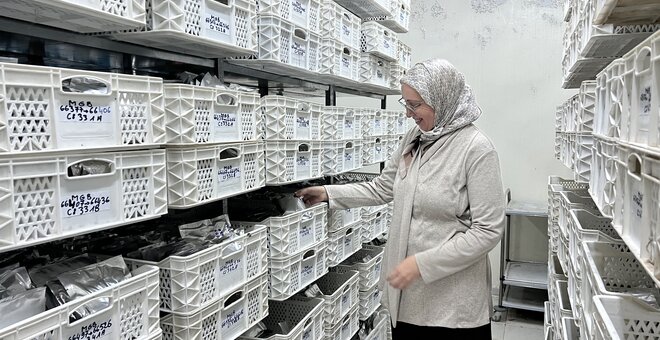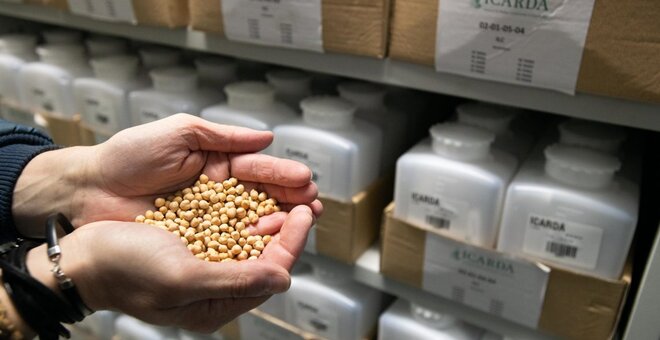Morocco: Genebank
Location
Settat, Morocco
Parent Organization
Institut National de la Recherche Agronomique
Mission
- Collection, conservation, characterization and enrichment of cultivated, pastoral, aromatic and medicinal plant species and their wild relatives
- Multiplication, rejuvenation and evaluation of collected and conserved germplasm
- Rational utilization of local and introduced plant genetic resources by the scientific community in Morocco
- Documentation of the genebank collection using a centrally managed information system
- Application of morphological and molecular markers to identify, characterize, evaluate and assess the genebank collections
- Conducting research in germplasm conservation, multiplication and adaptation
- Raising awareness of the importance of plant genetic resources to food and nutrition security and to climate-change adaptation.
Date Established
2003
Number of Samples Conserved
72,370 (as at September 2023)
Main Crops Conserved
- Wheat
- Barley
- Medicago
- Oats
- Maize
- Sunflower
- Vicia
- Rice
- Lentil
- Chickpea
Background
The Moroccan Genebank was established by the Institut National de la Recherche Agronomique (INRA) in 2003 to conserve and coordinate sustainable use of agriculturally important plant genetic resources in Morocco. The genebank is located at the INRA Regional Center for Agricultural Research at Settat.
The genebank has a staff of two full time researchers, one technician, one assistant technician and three temporary assistant technicians.
- Since 2011, the genebank has added 25,000 new samples to their collection. As of September 2023, the genebank holds some 72,370 samples representing a total of 166 genera and 568 species/subspecies. It has the capacity to hold 80,000 seed samples.
- A new genetic resources center near Rabat is expected to be operational by mid-2024 and will house plant, animal and microbial genetic resources units.
- The genebank has deposited approximately 1,000 seed samples representing 46 species to the Svalbard Global Seed Vault.
- The genebank is connected with INRA breeders and researchers, and collaborates closely with the International Center for Agricultural Research in the Dry Areas (ICARDA). The genebank distributes between 300 to 500 seed samples annually, mostly to INRA breeders and researchers.
The Collection
All of the crops conserved at the genebank produce orthodox seeds that can be dried and frozen for storage. The samples are managed according to international standards.
Cereals are the most important agricultural crop grown in Morocco and represent the largest share of the crops conserved at the INRA Genebank. Bread wheat, durum wheat and barley are both economically and nutritionally significant in Morocco.
Climate change, especially decreasing rainfall and increasing temperatures, are impacting agricultural productivity in Morocco, increasing the need for new, climate-resilient crop varieties. The genebank has close links with INRA breeders, enhancing use of the genebank collection. In the past 10 years, INRA has added 8,425 samples of cereal and legume landraces and wild relatives to the genebank collection, preserving this important diversity for future research and use.
Stories about Morocco
New Drought-tolerant Varieties of Durum Wheat and Barley for Morocco
An international collaboration of world-leading scientists led by the International Center for Agricultural Research in the Dry Areas (ICARDA), and supported by the Crop Trust, has delivered six new durum wheat and barley...
17 Mar 2023
Support for National Genebanks Underway
Seeds maintained in genebanks worldwide are the foundation of our future food and nutrition security.
16 Jun 2022
New ICARDA Morocco Genebank Set to Open
On May 18th, 2022, the new International Center for Agricultural Research in the Dry Areas (ICARDA) Morocco genebank is set to officially open in Rabat, Morocco.
This state-of-the-art facility safely stores one of the world's...
16 May 2022

